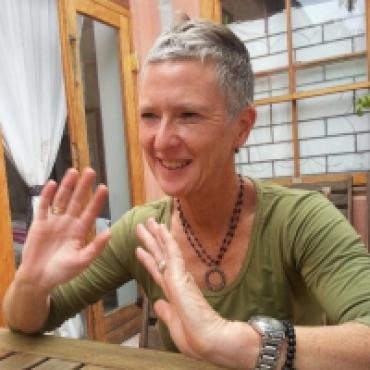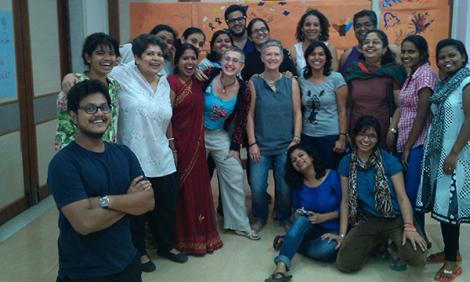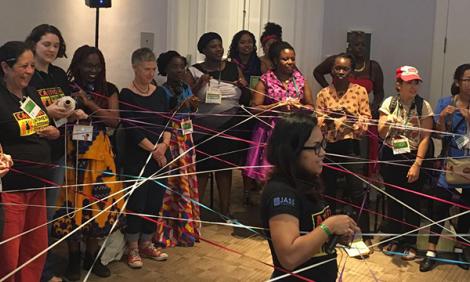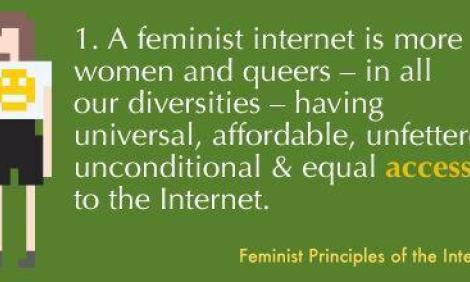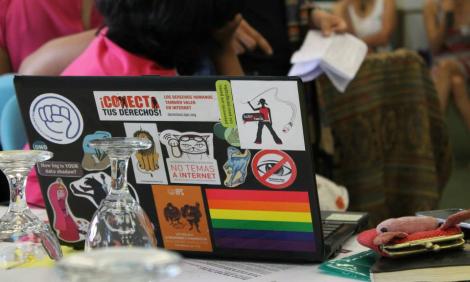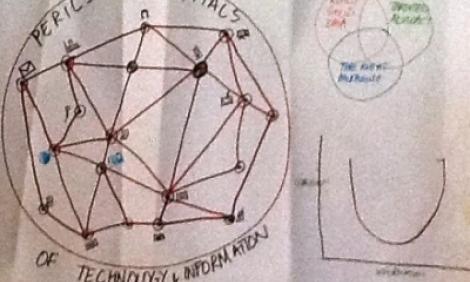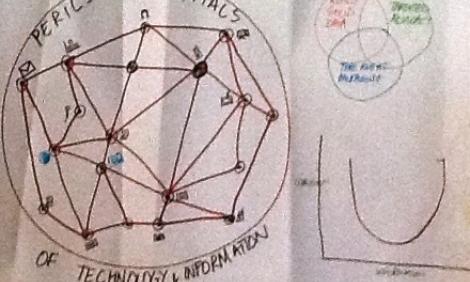In depth
Interview with Lili_Anaz: A body that knows itself ...
Lili_Anaz (Liliana Zaragoza Cano) is an artist, communicator, photographer, writer and hackfeminist activist whose entire work is a feminist exploration about the crossroads between art, body, memory, resistances, sexuality, human rights, hacking, and free technologies. In this interview with Jennifer Radloff Lili_Anaz speaks about her passions and her work in Mexico.
Conversaciones feministas
Digital Storytelling: All our stories are true and they are ours!
It is a sacred act to tell and to listen to stories. Some of our stories are rooted so deep in our cells, psyches and hearts, that it takes an act of courage to find the words to tell them. We each contain a multitude of stories that shape and make us who we are. It can also be a political act to tell a story. We conceptualise digital story telling as a recording and documentation method which…
Conversaciones feministas
Tools for movement builders: ICT Toolkit and We Rise – Just Associates
Central to the toolkit is how to develop a feminist communication strategy whilst making safe and sustainable choices amongst the array of available ICT tools. Rooted in the experience and contexts of women activists in southern Africa, the toolkit links our activism and organising that happens in person and “offline” to the tools of the online world. Especially since the online world creates…
In depth
#Unboxing Gender- Stockholm Internet Forum pre-event: Gender and access
A gender digital divide has been recognised since the 1990s. It's old news that there are gaps when it comes to women being able to easily, safely and affordably access technology. There are statistics, research evidence and anecdotal stories that support this. Although some efforts have been made to address this access gap, there is still a persistent and evident gender digital divide.
Conversaciones feministas
Interview with Yvonne Oluoch: Winner of the #IncYOUBateIT competition hosted by Making All Voices Count
"In a continent where women form a majority of the population and half of the workforce, it is an anomaly that the percentage of women working in technology is less than 15%. Technology is one of the key factors driving Africa’s projected economic rise. As such, there is enormous potential for maximizing the growth of technology through increasing the number and quality of women in technology."
Conversaciones feministas
Digital Security – from silencing to claiming safe spaces
Discourses on issues of safety are not new to feminists. Strategies to resist sexual harassment in the office, verbal abuse on the streets, physical violence in the home, shaming in social spaces and sexualised threats to women human rights defenders are continually being revisited and reworked. Often this abuse is about the silencing of women's voices and the marginalisation in social and…
In depth
Cómo influye el activismo en tu experiencia como ciudadana de internet
¿Qué significa usar internet plenamente y con libertad? ¿Qué libertad tienes para expresar quién eres, cómo vives tu vida, qué deseas, sueñas y crees en internet? ¿Y con cuánta seguridad puedes comunicarte, contribuir, existir, navegar y estar en los espacios en línea que pueden conectarte con comunidades y conocimientos que construyen nuestro sentido de ser nosotras mismas? Este artículo…
In depth
How activism shapes your experience of being a citizen on the internet
What does it mean to use the internet freely and fully? What freedom do you have to express who you are, how you live your life, what you desire, dream and believe in on the internet? And how safely can you communicate, contribute, exist, navigate and be in the spaces online that can so powerfully connect you to communities and knowledges that build our sense of self? This article written by…
In depth
Collateral damage of the cyberwar in Syria
Jennifer Radloff and Grady Johnson speak to a Syrian activist in exile about the government increasing tendency to securitize the internet and crack down freedom of expression and freedom to privacy on-line. They also talk how limited access to ICTs, self-censorship due to widespread surveillance and reliance on commercial social networks in combination with a general lack of technical knowledge…
In depth
Take Back the Tech! But know the risks first
Like any tool, ICTs can be tremendously useful, but dangerous if you don't know what you're doing. This is doubly true for activists and women's rights defenders. Jennifer Radloff and Erika Smith speak to participants from one of our secure online communications for women human rights defenders workshops who share their own experiences with ICTs and what they've learned from the training.

